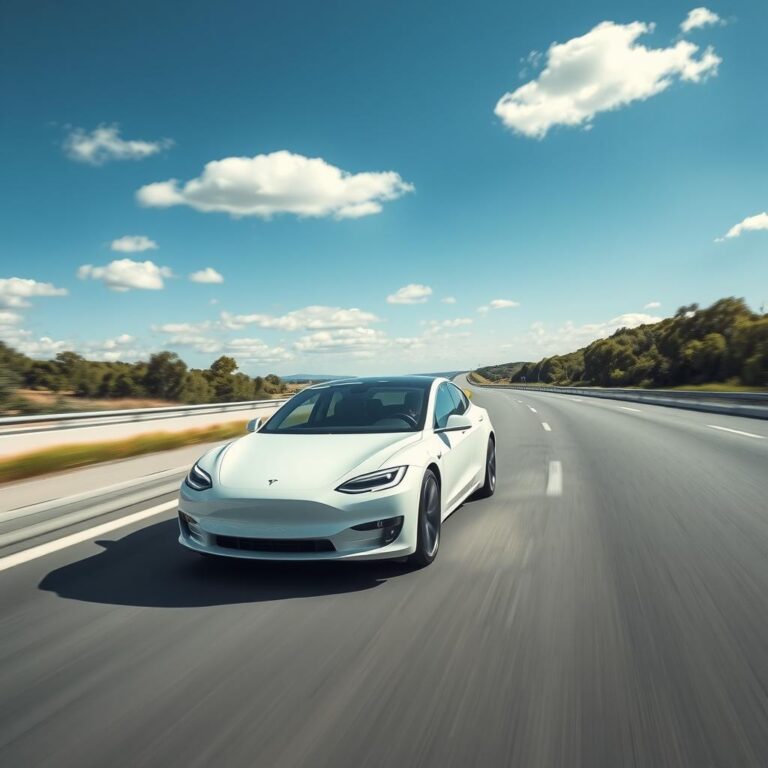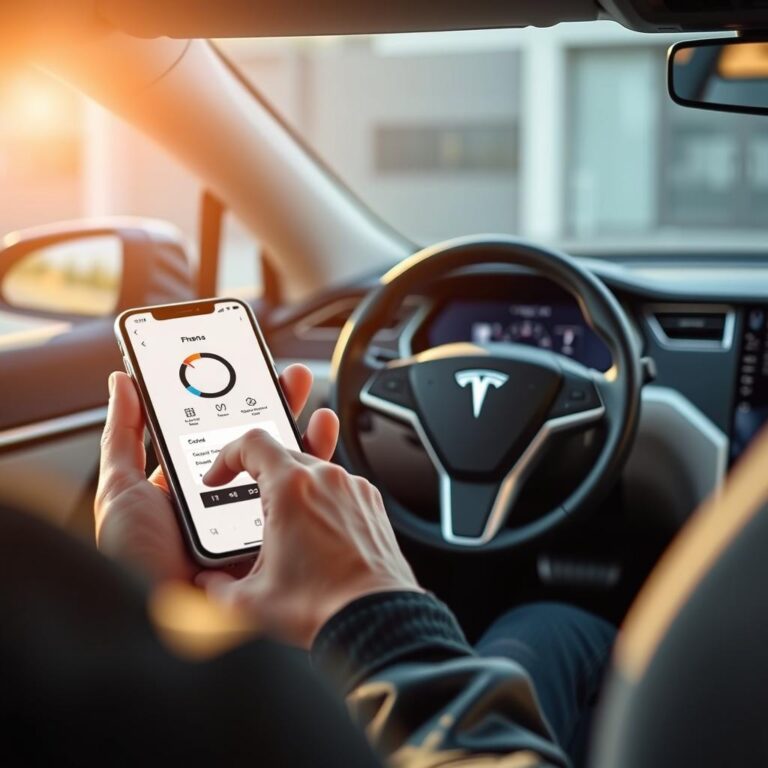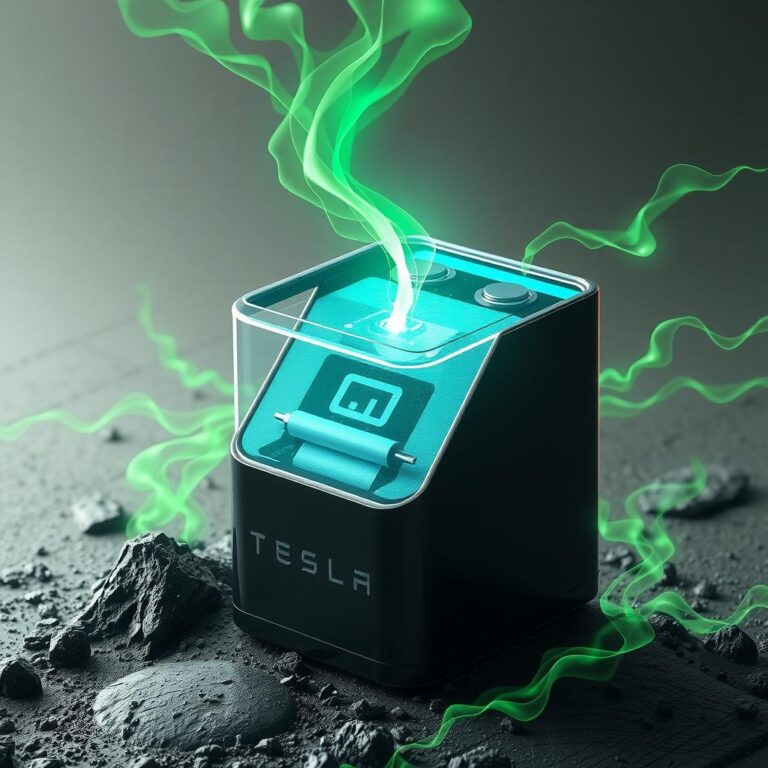Can Tesla Cars Take Gas?
Can Tesla cars take gas? No, Tesla cars are fully electric and do not have a gasoline engine. Unlike hybrid vehicles, Teslas rely entirely on electricity for power.
Why Can’t Tesla Cars Take Gas?
Tesla vehicles are designed as 100% electric cars, meaning they do not have an internal combustion engine (ICE) or a fuel tank.
- No gasoline engine: Tesla cars use electric motors instead of gas-powered engines.
- Rechargeable battery system: Teslas store energy in lithium-ion battery packs.
- No fuel tank: Tesla vehicles do not have a gas tank or fuel lines.
Do Tesla Cars Have a Backup Gas Engine?
No, Tesla vehicles do not have a backup gasoline engine like some hybrid cars.
- Pure electric drivetrain: Tesla’s power comes exclusively from its battery.
- No range extender: Unlike plug-in hybrids, Teslas do not have a small gas engine for emergencies.
- Battery management system: Ensures optimal efficiency without the need for gas.
Can You Convert a Tesla to Run on Gas?
No, converting a Tesla to use gasoline is not possible because its drivetrain is built for electric power only.
- Electric motors replace traditional engines: There is no space for a gas engine.
- No fuel delivery system: Tesla lacks fuel injectors, a carburetor, or an exhaust system.
- Software integration: Tesla’s advanced software controls an electric system, not an internal combustion engine.
What Happens If a Tesla Runs Out of Battery?
Unlike gas-powered cars, a Tesla cannot be refueled at a gas station. If the battery runs out, the car will stop.
- Warning alerts: Tesla notifies drivers when the battery is low.
- Reduced power mode: Before shutting down, the car limits power to extend range.
- Requires a tow or mobile charger: If fully drained, the car must be recharged.
How Do Tesla Cars Get Power?
Instead of gas, Tesla cars use rechargeable batteries that store electricity.
- Home charging: Most Tesla owners charge their cars at home using a Wall Connector.
- Superchargers: Tesla’s network of fast-charging stations provides quick recharging.
- Public charging stations: Tesla can also charge at third-party Level 2 and DC fast chargers.
Do Any Electric Cars Use Gas?
Some electric vehicles (EVs) have gas backup systems, but Tesla does not.
- Hybrid vehicles: Cars like the Toyota Prius use both gas and electricity.
- Plug-in hybrids (PHEVs): Vehicles like the Chevy Volt have a small gas engine for longer trips.
- Range extenders: Some EVs include a small engine that generates electricity, but Tesla does not offer this.
Why Doesn’t Tesla Offer a Hybrid Model?
Tesla believes that fully electric cars are the future and does not manufacture hybrids.
- Elon Musk’s vision: Tesla focuses on eliminating fossil fuels.
- More efficient battery technology: Tesla’s long-range battery packs remove the need for gas.
- Simpler drivetrain: Electric motors require less maintenance than gas engines.
Can You Put Gas in a Tesla Charging Port?
No, Tesla’s charging port is not designed for gasoline.
- Only accepts electricity: The port connects to a power source, not a fuel pump.
- Could damage the vehicle: Attempting to put gas in a Tesla charging port would serve no purpose.
- Safety precautions: Tesla has built-in protection to prevent charging with anything other than electricity.
So, can Tesla cars take gas? No, Tesla vehicles are fully electric and do not have the capability to run on gasoline.
In the next section, we’ll explore how Tesla’s battery technology works, charging times, and the future of electric transportation.

How Long Does It Take to Charge a Tesla?
Charging times vary depending on the type of charger used.
- Supercharger: Adds up to 200 miles in about 15 minutes.
- Level 2 home charger: Adds 30-44 miles per hour of charge.
- Standard 120V outlet: Adds only 3-5 miles of range per hour.
What Is the Range of a Tesla on a Full Charge?
The driving range of a Tesla depends on the model and battery size.
- Model S Long Range: Up to 405 miles per charge.
- Model 3 Long Range: Around 358 miles per charge.
- Model X Plaid: Approximately 333 miles per charge.
- Model Y Performance: Up to 303 miles per charge.
How Does Tesla’s Battery Compare to Gasoline?
Compared to gasoline, Tesla’s battery-powered system has several advantages.
- Lower operating costs: Charging is cheaper than refueling with gas.
- No emissions: Tesla produces zero tailpipe emissions.
- Less maintenance: No oil changes, spark plugs, or fuel filters.
What Happens If a Tesla Battery Dies?
Unlike gas cars, a Tesla cannot be refueled at a gas station. If the battery dies, here’s what happens:
- Warning alerts: The car gives multiple alerts before reaching 0%.
- Reduced performance mode: Tesla limits acceleration and speed as the charge depletes.
- Complete shutdown: Once fully drained, the vehicle must be towed or recharged.
Can Tesla Batteries Last as Long as Gas Cars?
Yes, Tesla batteries are designed to last hundreds of thousands of miles.
- Battery lifespan: Tesla batteries typically last 300,000 to 500,000 miles.
- Battery degradation: Tesla’s battery retains around 90% capacity even after 100,000 miles.
- Replacement options: If needed, Tesla offers battery replacement services.
What Is Tesla Doing to Improve Battery Technology?
Tesla is constantly improving its battery technology to extend range and efficiency.
- New 4680 battery cells: Offer higher energy density and longer lifespan.
- Faster charging speeds: Tesla aims to reduce charging time in future models.
- Better energy storage: Tesla’s Powerwall and Megapack enhance home and grid energy storage.
Can a Tesla Be Used as a Backup Power Source?
Yes, Tesla’s battery can be used for emergency power with the right setup.
- Vehicle-to-home (V2H) power: Allows Tesla to power home appliances.
- Solar integration: Tesla’s Powerwall stores energy for use during power outages.
- Future bidirectional charging: Tesla is working on allowing cars to send energy back to the grid.
Will Tesla Ever Make a Hybrid Car?
It’s unlikely. Tesla is committed to fully electric vehicles and has no plans to produce hybrid cars.
- Elon Musk’s vision: Tesla aims to eliminate fossil fuel reliance.
- Better battery range: Tesla’s long-range models remove the need for gas backup.
- Simpler design: Electric drivetrains are more efficient than hybrid systems.
What Are the Benefits of a Fully Electric Tesla?
Owning a Tesla comes with many advantages over gas-powered cars.
Pros:
- No gas required: Tesla owners never need to stop at a gas station.
- Lower cost per mile: Charging is much cheaper than buying gas.
- Quiet and smooth ride: Electric motors produce no engine noise.
- Fewer moving parts: Less maintenance compared to gas cars.
Cons:
- Charging infrastructure: Requires access to home charging or Superchargers.
- Longer refueling time: Charging takes longer than filling a gas tank.
- Battery replacement cost: While rare, replacing a battery can be expensive.
Final Thoughts: Can Tesla Cars Take Gas?
No, Tesla cars are 100% electric and do not have a gasoline engine.
- Tesla does not support gasoline: There is no fuel tank or engine.
- Charging replaces refueling: Tesla vehicles must be recharged instead of refueled.
- Battery technology continues to improve: Tesla is leading the way in EV innovation.
For those looking to switch from gas to electric, Tesla offers one of the best options available today.
FAQs
Can Tesla cars run on gas?
No, Tesla vehicles are fully electric and do not have a gasoline engine or fuel tank.
What happens if a Tesla runs out of battery?
If a Tesla battery reaches 0%, the car will shut down and require a tow or charging service.
Can a Tesla be converted to run on gas?
No, Tesla’s design is entirely electric, and it cannot be modified to run on gasoline.
Do any Teslas have a backup gas engine?
No, all Tesla models rely exclusively on battery power and do not have a gasoline backup engine.
Why doesn’t Tesla make hybrid cars?
Tesla is committed to a fully electric future and believes hybrid technology is unnecessary as battery range improves.
So, can Tesla cars take gas? No—Tesla vehicles are built for a future without gasoline.



